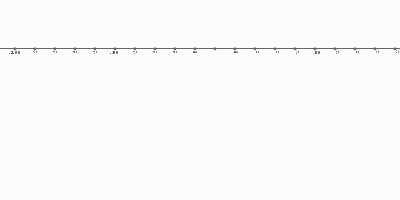may 5, 1917 - Russian Revolution
Description:
Mar 8 On International Woman's Day, Russian women demonstrate for women's issues and are joined by women who are just hungry and by a few labor union males. The demonstrations will grow day by day and focus on the nation's leader, Tsar Nicholas.Mar 15 Tsar Nicholas lacks the support from his military that he would need to remain in power. He abdicates. Councils (soviets) spring up as democratic gatherings and a spontaneous government grass roots.
Apr 16 Lenin arrives by train from Switzerland in Russia's capital, Petrograd (formerly Saint Petersburg), and speaks to people fed up with war, hunger and exploitation. It will be months before troops will be put on transport ships for Europe.
Jul 7 Alexander Kerensky, a believer in Russia staying in the war and the new offensive, which he helped organize, becomes premier of the Russian Provisional Government.
Jul 16-17 Russia's new offensive, led by General Brusilov, doesn't repeat his 1916 successes. Failure is accompanied by troop mutinies with soldiers abandoning the front lines. Hundreds are shot by their commanding officers, and officers are shot by their troops.
Jul 16-18 There is fighting in the streets of Petrograd. A coup is attempted against the Provisional Government. The Provisional Government goes after radicals opposed to the war. Lenin, who has considered the coup premature, escapes to Finland. The government arrests Leon Trotsky, a leader in the Petrograd Soviet.
Sep 16 Trotsky is released from prison.
Sep 18 The Bolsheviks are leading the anti-war movement in Russia. Voting gives them a majority in the Moscow Soviet.
Sep 23 Voting gives the Bolsheviks a majority in the Petrograd Soviet.
Oct 8 Trotsky is elected President of the Petrograd Soviet.
Oct 26 A German U-boat has sunk a Brazilian ship. Brazil declares war against the Central Powers.
Nov 7 With Trotsky's blessing and In the name of the Soviets, armed revolutionary soldiers led by Bolsheviks occupy Petrograd's communication centers: the telegraph exchange, post office and telephone exchange. They surround the state bank and then take over the Winter Palace, which contains offices of the Provisional Government, now proclaimed defunct. Lenin comes out of hiding.
Nov 8 Lenin gives his keynote address to the Soviet assembly. "We shall now proceed to the construction of the socialist order," he declares and is wildly applauded. During a four-day convocation, democracy is proclaimed, including complete democratization of the army. Local power is to be put in the hands of workers' and peasants' Soviets. The eight-hour work day is proclaimed. Anti-Jewish pogroms or incidents are declared illegal. All nationalities that have been under tsarist rule are declared as having self-determination. Newspapers hostile to the revolution are to be closed because, it is said, newspapers have been under the control of wealthy persons who should be prevented from "poisoning and confusing" the minds of the masses.
Nov 23 The Bolsheviks have gained access to secret government documents and they release the full text of the Sykes-Picot Agreement to carve up the Middle East.
1918:
Jan 31 In Russia, armed detachments of workers and poor peasants are confiscating food that farmers had stored.
Feb 19 Lenin is leading Russia's government, and he has opted for peace at any price. At the border town of Brest-Litovsk his government signs a treaty with the Germans that involves the loss of territory, including the Ukraine, desired by Germany as a source of food. This will create a conflict with his allies in the soviets. Meanwhile, rather than apply regulations to some business enterprises and nationalize some others, the Bolsheviks aim at elimination of all privately owned businesses, large and small.
Jun 28 The Bolsheviks have lost control of eastern Siberia. Japan has troops in Vladivostok and were advancing along the trans-Siberian railway. British and French troops were in Murmansk. The Soviet government institutes "War Communism." All major branches of industry come under military discipline.
Jul 17 The Bolsheviks shoot Tsar Nicholas II, his wife Alexandra Feodorovna, their children, Olga, Tatiana, Maria, Anastasia and Alexei, rather than allow them to be rescued and used by forces advancing in Siberia.
Added to timeline:
Date:
may 5, 1917
Now
~ 108 years ago
